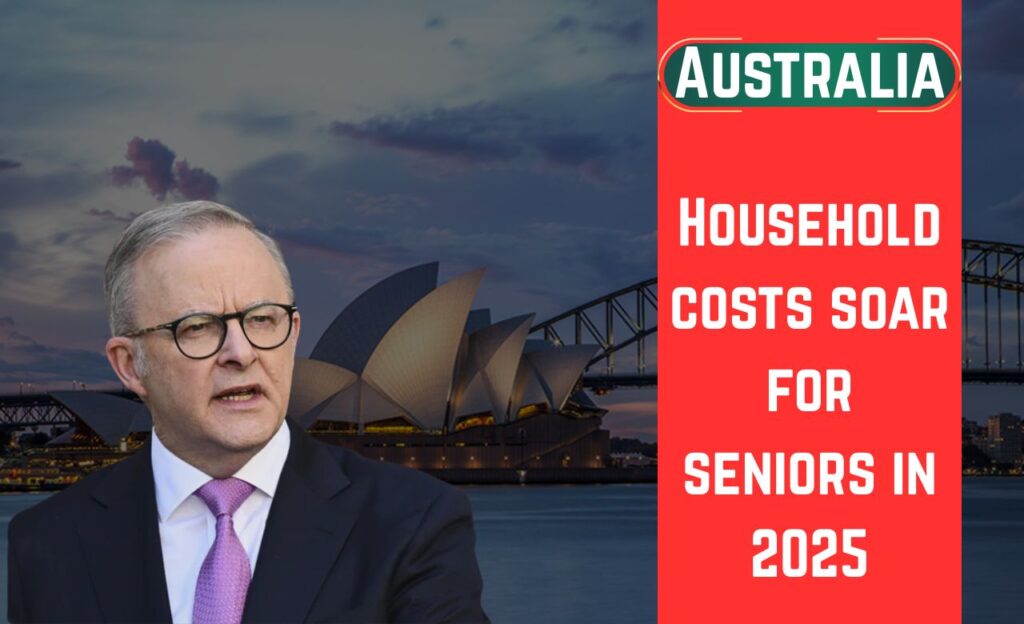Australia’s household costs in 2025 have risen sharply, with retirees facing a major challenge as their annual budget has blown out by an extra $13,000. Rising expenses across essential needs like healthcare, housing, utilities, and groceries are hitting pensioners the hardest, especially those relying solely on fixed incomes. This surge in living costs has sparked concerns about the long-term sustainability of retirement savings and pensions. Understanding what drives this budget increase and how retirees can plan or adjust their finances is crucial for maintaining stability and avoiding financial stress in Australia.

Rising Household Costs for Retirees in Australia 2025
The year 2025 has brought significant increases in living costs for Australian households, with retirees most affected. Healthcare premiums have jumped, rents have risen due to housing shortages, and energy bills have escalated amid global price hikes. Retirees depending on superannuation or government pensions are seeing their purchasing power shrink. A budget blowout of $13,000 annually means many seniors must cut back on essentials or seek financial assistance. The Australian government is reviewing measures like pension top-ups and cost-of-living relief payments, but many retirees still find it difficult to cope with these rising expenses.
- Healthcare costs and insurance premiums increased
- Housing and rental prices climbing higher
- Utility and grocery bills becoming more expensive
Impact on Retirement Lifestyle and Financial Planning
A $13,000 annual increase significantly alters how retirees plan their lifestyle. What once covered medical care, leisure, and basic living now falls short, pushing many to reconsider their budgets. Retirees who had saved for a comfortable retirement are forced to make compromises, such as cutting back on travel, eating out less, or even moving to smaller housing. For some, the stress of managing unexpected financial pressures affects their health and wellbeing. Financial advisors in Australia recommend retirees diversify their investments, review pension eligibility, and make use of government relief programs to cushion the impact of household cost surges.
- Retirees scaling back non-essential expenses
- Greater dependency on pensions and allowances
- Health and wellbeing at risk due to financial stress
Government Response and Support Options for Seniors
In response to the growing burden on retirees, the Australian government has rolled out targeted measures in 2025, including increased energy credits, rental assistance, and pension adjustments. However, critics argue these measures are temporary fixes rather than long-term solutions. There is also debate on whether the pension system should be restructured to match rising life expectancy and inflation. Seniors are encouraged to explore all available assistance, including state-level rebates, medical subsidies, and community programs. The government has hinted at further policy changes to ensure retirement remains sustainable for Australians despite rising household costs.
- Energy credits and rent support programs expanded
- Pension adjustments under government review
- State rebates and medical subsidies available

Financial Strategies for Retirees to Handle 2025 Budget Blows
With household costs rising faster than pensions, retirees must take proactive steps. Creating a revised monthly budget is essential, focusing on essential expenses first. Seniors are advised to consult with financial planners about drawing down superannuation wisely and reducing discretionary spending. Exploring part-time work, downsizing homes, or moving to regional areas with lower living costs are also viable strategies. Staying updated on government relief schemes and regularly reviewing financial plans can help retirees manage the $13,000 budget gap. By adapting to current conditions, retirees can maintain stability despite Australia’s rising costs.
- Review monthly budgets and reduce non-essentials
- Explore downsizing or relocating to affordable areas
- Seek professional financial advice and support
| Category | 2024 Average Cost | 2025 Average Cost | Increase |
|---|---|---|---|
| Healthcare & Insurance | $6,500 | $8,200 | +$1,700 |
| Housing & Rent | $15,000 | $18,500 | +$3,500 |
| Utilities (Energy, Water) | $4,200 | $5,500 | +$1,300 |
| Groceries & Essentials | $9,000 | $11,200 | +$2,200 |
| Transport | $3,800 | $4,600 | +$800 |
| Leisure & Other | $7,500 | $10,000 | +$2,500 |
| Total Annual Budget | $46,000 | $59,000 | +$13,000 |
FAQs on Australia Household Costs for Retirees 2025
Q1: Why has the retiree budget increased by $13,000 in 2025?
A: Rising healthcare, rent, utilities, and grocery costs are the main drivers.
Q2: What support is available for retirees in Australia?
A: Pension increases, rent support, energy credits, and rebates are offered.
Q3: Can retirees adjust their spending to cope with higher costs?
A: Yes, by cutting non-essentials, downsizing, and revising budgets.
Q4: Will the government take long-term steps to reduce the burden?
A: Reviews are underway to align pensions and benefits with rising living costs.
How will the increased household costs affect retirees' budgets in Australia by 2025?
Retiree budgets will increase by $13,000 due to rising expenses.
What are the implications of the $13,000 budget increase for Australian retirees in 2025?
Retirees may face financial strain and need to reevaluate expenses.
How does the $13,000 budget increase impact Australian retirees' financial planning?
Retirees may need to adjust their financial plans for increased expenses.





